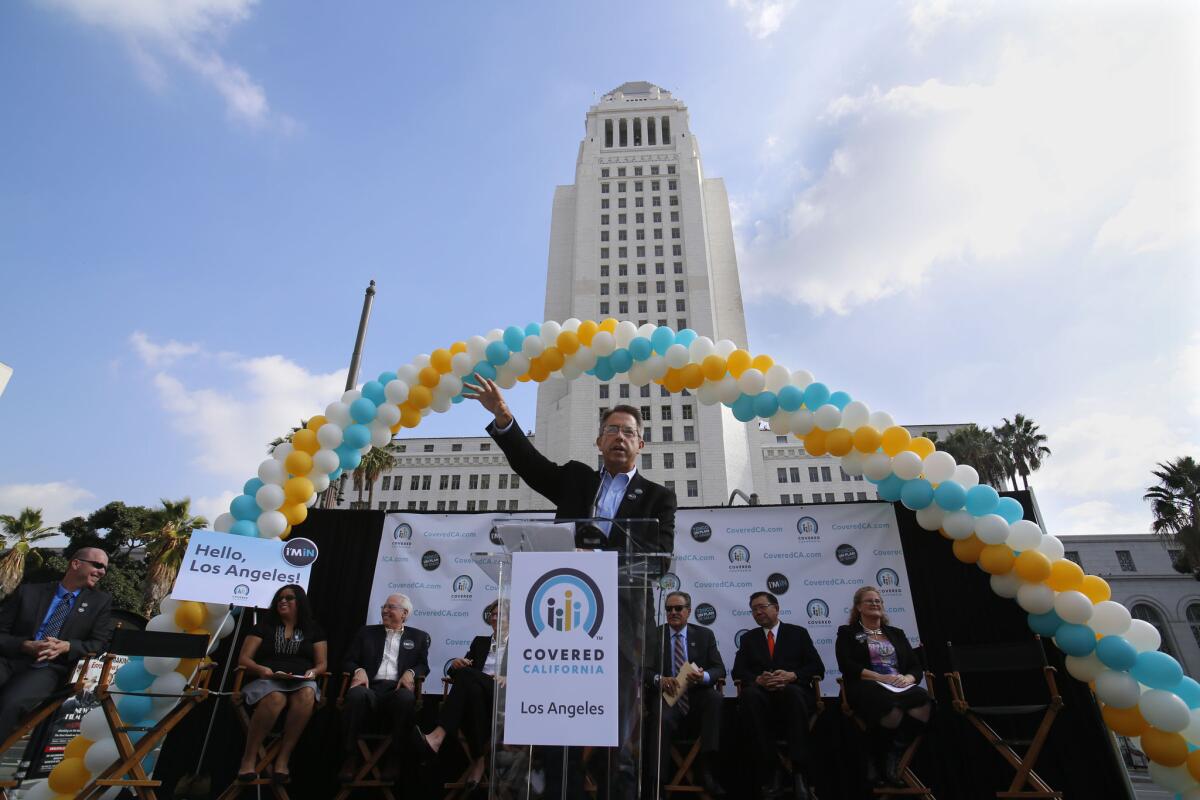Obamacare poll: Most still know little about it; few want it repealed

Several aspects of public opinion on the Affordable Care Act have remained unchanging virtually since its inception: most people don’t know what it does or how it affects them personally, but when asked about it in the most general terms they say they’re against it.
The resulting confusion has been consistently exploited by the law’s political opponents, who continue to call for repeal of the whole law, even though that’s favored by a minority of Americans. Even fewer think that will happen or that the Republican Party has offered a serious alternative to the law.
The latest report from the Kaiser Family Foundation’s tracking poll on the ACA reinforces those conclusions and offers some new findings. KFF’s latest telephone survey was conducted during the third week of January among 1,503 adults. Some key charts from the survey are reproduced below. All the results can be found here.
As before, the key finding from the survey is that the vast majority of Americans aren’t familiar with the law itself or the continuing legal and legislative maneuvers over it. When asked their opinion of the law generally, rather than of its specific provisions, “unfavorable” outpolled “favorable” by 46% to 40%. That’s not far off the range of opinion dating back to the law’s passage in 2010.
The vast majority of respondents say the law hasn’t affected them. That’s expected, because more than four out of five Americans get their health coverage from their employers or a federal program such as Medicare, and about the same ratio seldom have any serious interaction with the healthcare system. Of those who cited an impact, more said the law hurt them than helped, 25% to 16%, but only 28% of all respondents said their opinion of the law was based on personal experience, as opposed to reports in the media (40%) or from friends and family (21%).
Lack of information still is the prevailing factor. That’s especially true for King vs. Burwell, the Obamacare challenge that will be heard by the Supreme Court in March, with a ruling expected in July.
Based on their reading of a three-word phrase in the ACA, the conservative plaintiffs in King vs. Burwell say the ACA’s subsidies to insurance buyers should be overturned in the three dozen states that have relied on the federal government’s insurance exchange to sell policies, rather than setting up their own exchanges. Most legal experts say that’s an absurd misreading of the law, but the fact that the Supreme Court has taken the case poses the real chance that the subsidies will be nullified. That would crash the individual health insurance markets in those states unless Congress or the states implement a quick fix.
Although the King case has received intensive news coverage over the last few months and despite its threat to affordable health insurance for more than 5 million people, most respondents to the KFF survey (56%) said they’ve heard nothing at all about it. Another 30% say they’ve heard “only a little,” and only 5% say they’ve heard a lot.
Once it’s explained to them, however, nearly two-thirds say Congress should pass a law fixing what is purely a drafting glitch in the ACA. That finding holds in states with their own exchanges and those reliant on the government’s healthcare.gov exchange; only among self-described Republicans does opposition to a congressional fix outpoll the alternative, 49% to 40%.
Nearly 60% of respondents in states without their own exchanges -- that is, the states where subsidies are threatened -- say their state should take action to safeguard the subsidy, specifically by moving to establish a state exchange.
Respondents were also murky on the top congressional initiative aimed at the ACA. This is a Republican proposal to raise the threshold definition of “full-time” employment to 40 hours per week from the ACA’s 30. As we’ve reported, this would be a boon to employers, who could leave more of their workforce uninsured without facing federal penalties, but would potentially threaten the livelihoods of tens of millions of workers.
Employees on the very edge of the full-time threshold are most at risk of having their hours cut by employers trying to avoid the coverage mandate -- but there are many millions more of them working 40 hours or just above than there are in the 30-hour range.
The implications are subtle, which may explain why respondents’ views of the proposal are “malleable,” as KFF puts it. Opposition to the proposal outpolled support by 40% to 26%, with the rest saying they didn’t know enough to answer. But when supporters were told the change would increase the deficit and threaten the hours of more workers, opposition increased to 51%. And when those opposing the change were told that working-class employees denied coverage at work could get subsidies to buy insurance on the exchanges, support increased from 26% to 41%.
If there’s a clear conclusion to be drawn from the findings, it’s that most Americans would like to see the law improved rather than repealed. And they’re not especially happy with the silent partner in the discussion, the Republican Party. Only 14% of all respondents believe the GOP has “an agreed-upon alternative to the ACA.” Among Republicans themselves, only 20% think there’s a GOP plan. That’s the harvest of the Republicans spending almost five years demanding a repeal that will never happen, rather than contributing to progress.
Keep up to date with the Economy Hub. Follow @hiltzikm on Twitter, see our Facebook page, or email mhiltzik@latimes.com.
More to Read
Inside the business of entertainment
The Wide Shot brings you news, analysis and insights on everything from streaming wars to production — and what it all means for the future.
You may occasionally receive promotional content from the Los Angeles Times.











